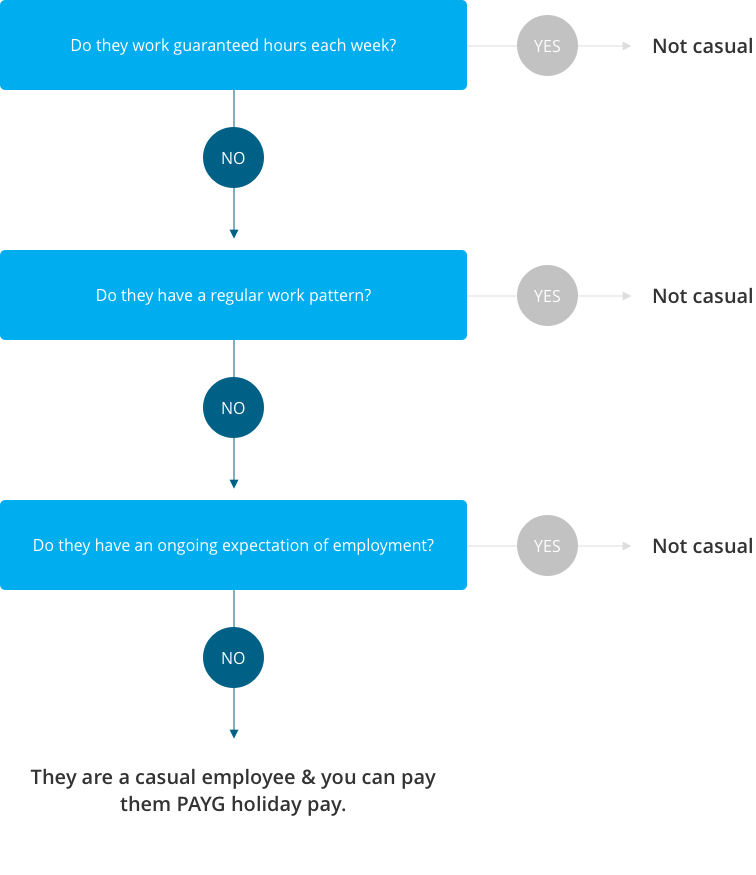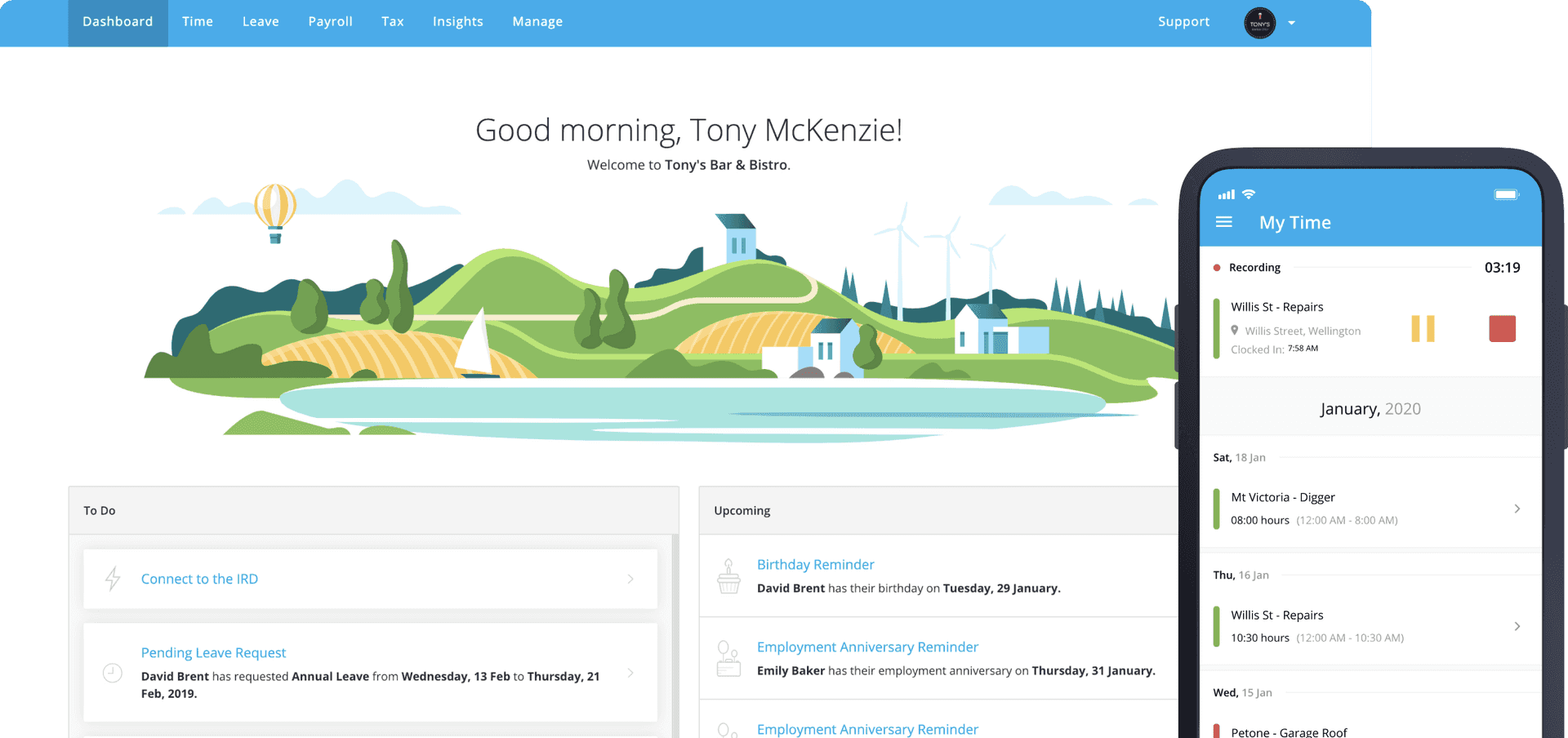Team Management
An Employer's Guide to Casual Employees
How do you know if your employees are casual or permanent part time? This is a question we get asked all too often and the answer isn’t always straightforward, so we’ve pulled together a guide to the key differences and entitlements that you as an employer should be aware of.
What is a casual employee?
Let’s cut to the chase early – there’s nothing in employment legislation that defines what a casual employee is. However, the term usually refers to an employee who:
Has no guaranteed hours
Has no regular work patterns
Has no ongoing expectation of employment
The employer doesn’t have to offer work to the employee, and the employee doesn’t have to accept work if it’s offered. The employee works as and when it suits both them and the employer. Each time the employee accepts an offer of work it is treated as a new period of employment.
The other important factors in determining the type of employee is how the employment is described the employment contract and whether the employee qualifies to receive Pay As You Go (PAYG) holiday pay.
Is my employee casual?

When can you pay an employee PAYG holiday pay?
All types of employees have the right to four weeks’ annual holidays per year. Though in certain circumstances some employees may be paid their annual holiday entitlement on a pay-as-you-go basis.
Annual holiday pay may be paid within an employee’s regular pay if:
The employee agrees in the employment agreement
The annual holiday pay is paid as an identifiable component of the employee’s pay
The annual holiday pay is paid at a minimum of 8% of the employee’s gross earnings
The employee is hired on a fixed-term agreement to work for less than 12 months OR works irregularly for the employer, making it impracticable for the employer to provide 4 weeks’ annual holiday.
All four points of the criteria must be met.
As part of the Holidays Act Taskforce review the Government is proposing changes to these rules, including:
Introducing a clearer definition of what ‘intermittent or irregular’ means, including requiring evidence of periods without work
Removing the ability to pay PAYG for employees on fixed term contracts of less than 12 month.
Introducing a requirement that employers review PAYG employees every 13 weeks to check their eligibility for PAYG.
We'll update this article as and when changes are introduced. For more about the proposed changes see our Changes to the Holidays Act Factsheet.
What are casual employees entitled to?
Casual employees on PAYG holiday pay are entitled to:
Sick, bereavement and domestic violence leave after 6 months of starting work if during that time they have worked:
An average of at least 10 hours per week, and
at least one hour per week or 40 hours a month
Public Holidays, if the holiday lands on a day the employee would have otherwise worked. Employment New Zealand has a great calculator to help work this out.
Employer contributions to their KiwiSaver at a minimum rate of 3%, although casual employees aren’t automatically enrolled into the KiwiSaver scheme if they don’t already have an account.
The right to a fair termination process.
The Employment New Zealand website has got you covered with more info. If you need a bit more guidance, this visual guide from MBIE outlines the various kinds of employees and how to differentiate between them.
What’s the nitty gritty?
As with many employment and payroll matters, the devil is in the detail. Employers often confuse part time employees and casuals. Whether an employee is casual or permanent part time depends on the real nature of the employment relationship, not just on the words used to describe it.
In some cases, employees may begin working on a casual basis, yet over time a regular pattern of work develops meaning the employee has become a permanent part timer, even if neither party realises this has happened. If you have casual staff it’s worthwhile keeping a close eye on their employment status and which entitlements they’re receiving. Confusion can lead to underpayment or overpayment, which can be a bit tricky to make right again.
If you pay PAYG holiday pay to an employee who doesn’t meet the criteria, the employee is then entitled to annual holidays (including payment for them) as usual even if PAYG holiday payments have been made.
Let’s get it right
By now you’ve no doubt seen that hiring a ‘casual’ employee may not be as simple as it sounds. If you’re still keen to go ahead and hire someone on a casual basis, just make sure you do your homework and regularly review the employment relationship to see if things have changed.
Ultimately, hiring ‘casual’ employees can be beneficial to some businesses. Casuals can help you out when you need an extra set of hands while allowing a degree of flexibility to both parties, but you need to take care that they receive their full entitlements.
If you’re still unsure whether to treat a staff member as a casual employee after reading this guide, err on the side of caution or check with an employment lawyer.
PayHero tracks hourly work with ease and automatically calculates pay and entitlements for part time, casual, contract or shift workers. Create an account today and get 14 days free.






